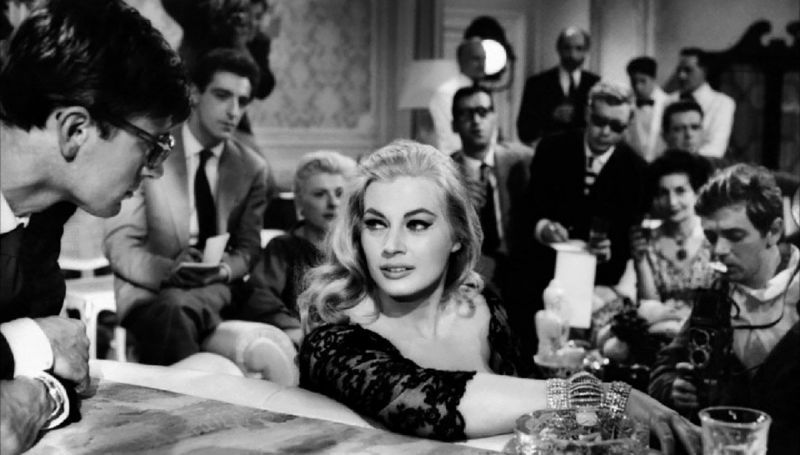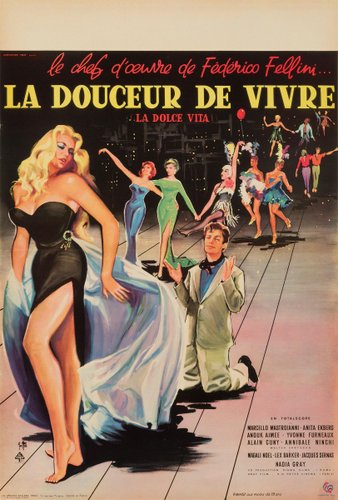

Mastroianni eventually became identified in the public's mind as Fellini's alter ego. La dolce vita marks the first of many close collaborations between Fellini and Italy's greatest actor: Mastroianni, who died in 1996, only a few years after Fellini. Thousands of tourists would flock to Rome for years to come in search of the Via Veneto locations Fellini had actually created in the huge Teatro 5 at Cinecitta, or to toss a coin into the Trevi Fountain into which Fellini's star, Anita Ekberg, had waded with Marcello Mastroianni. Finally, and most surprisingly, Fellini found the leftist Italian press in his camp (after years of attacks upon his works for their supposedly Catholic character), while some supporters who had admired the Christian elements in his earlier films now abandoned him. La dolce vita - especially in conjunction with the subsequent 8r/2, a film about a filmmaker's inability to make his film - resulted in the virtual canonization of Fellini as the archetypal genius, the auteur of auteurs, the undisputed king of what is today, in retrospect, referred to as the European "art" film. As La dolce vita and 8^2 are the subjects of separate chapters in this study, it is sufficient here to note that the lush fresco of the titular "sweet life" in the first film, presenting a comic panorama of life defined as image and style, broke all Italian box-office records and most of those in Europe as well, winning a number of international awards, including the Grand Jury Prize at Cannes.



Whereas his cinema first emerged in his trilogy of character from a dialectical relationship with neorealist cinema, a style of filmmaking in which Fellini's career began as a scriptwriter, the evolution of Fellini's film language in La dolce vita and afterward - most particularly in 8I/2 and Giulietta degli spiriti (Juliet of the Spirits, 1965) - would move beyond any overriding concern with the representation of social reality and concentrate upon the subjective, often irrational areas of human behavior connected with the psyche or the unconscious. With the unprecedented international success of La dolce vita, Fellini departed in a number of fundamental ways from the aesthetic and thematic preoccupations that had earned him the coveted title of auteur from international critics.


 0 kommentar(er)
0 kommentar(er)
